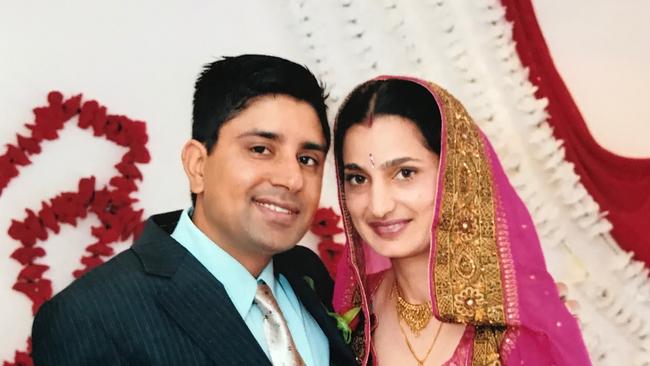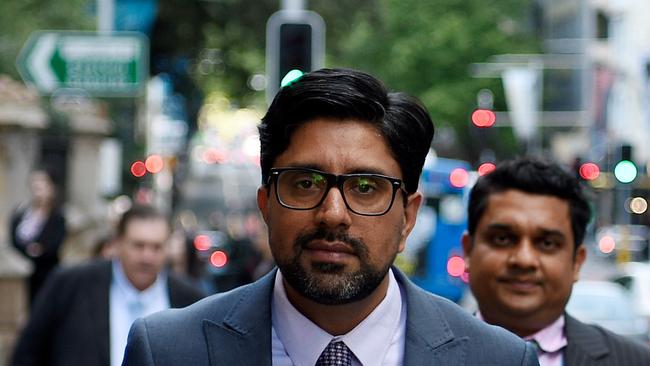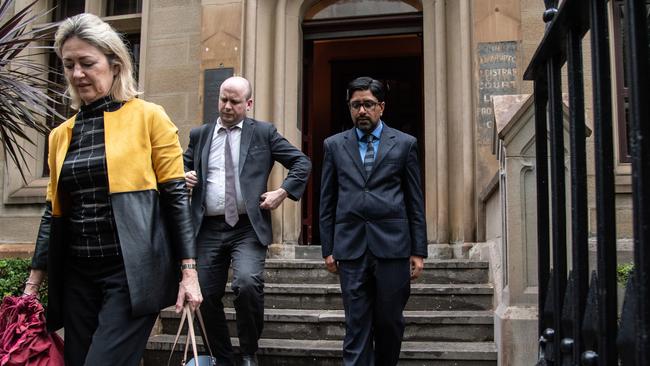Accused murderer Kulwinder Singh’s DNA sample destroyed
A DNA sample from a man accused of burning his wife alive in a high-profile murder trial had been “destroyed” by the prosecution, the Supreme Court was told today.

NSW
Don't miss out on the headlines from NSW. Followed categories will be added to My News.
- COVID-19: Two Sydney suburbs facing full-scale lockdown
- Hotel isolation for all new arrivals, NSW cruise cases rise
A DNA sample from a man accused of burning his wife alive in a high-profile trial has been “destroyed” by the prosecution, the Supreme Court was told today.
The court was not told the circumstances in which the sample from railway worker Kulwinder Singh was destroyed but he is yet to face a retrial and the prosecution now want another sample from him.

A jury late last year was unable to reach a verdict on the allegation that he murdered Parwinder Kaur, who sustained burns to 90 per cent of her body.
Ms Kaur, 32, died in a giant fireball at their Rouse Hill home in December 2013. Singh, 41, has pleaded not guilty to murder and told the court during his trial that he had rushed downstairs to find his wife had set herself alight.
The trial had heard that the fire was propelled by petrol and the only fingerprints found on a petrol can and a cigarette lighter in the couple’s laundry were those of Ms Kaur.
Singh has applied to the court for a judge-alone trial while the Office of the Director of Public Prosecutions is seeking a second trial by jury.

It was during those arguments in court today that Crown prosecutor John Bowers said Singh’s DNA sample — which was given by him on the night his wife died — had been “destroyed” and the prosecution wanted Singh to provide a second sample.
Mr Bowers said it was needed in relation to a knife. The knife was found in the laundry of the family home and evidence given during the trial was that it was a steak knife used by mushroom packer Ms Kaur to cut vegetables from her garden.
Counsel for Singh, Margaret Cunneen SC, told the court that Singh wanted his retrial as soon as possible because as well as being over six years since his wife died, he had been suspended from his job as a manager with CityRail and his old job would be available to him again on acquittal.
But either a judge-alone or a jury trial is a casualty of the coronavirus crisis which has led to five criminal trials being postponed so far, Justice Elizabeth Fullerton said.

Either would have to be heard remotely with witnesses giving evidence via videolink and not even lawyers allowed in the courtroom because of the pandemic.
Justice Fullerton said that would not be in the interests of justice. Ms Kaur’s family members needed Punjabi interpreters and the judge said she would not order interpreters to stand close to the witnesses at this time.
Ms Cunneen has withdrawn her application for a judge-alone trial at this time and it will be decided at a future date.
Originally published as Accused murderer Kulwinder Singh’s DNA sample destroyed
